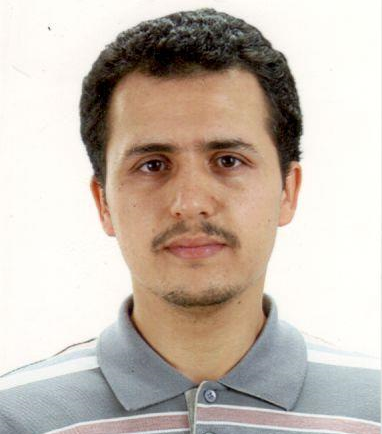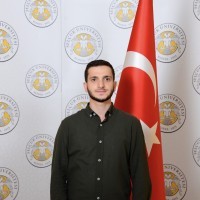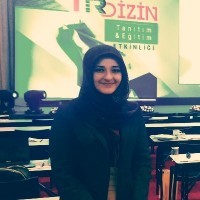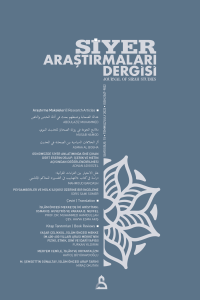Research Article
Translation
Book Review
Issue Editorial Board

History of Islam

1988 Konya'da doğdu.
2008'de Selçuk Üniversitesi İlahiyat Fakültesi
2011 Selçuk Üniversitesi Sosyal Bilimler Enstitüsü Hadis Yüksek Lisans
2018 Sakarya Üniversitesi Sosyal Bilimler Enstitüsü Hadis Doktora
2009 Şırnak Üniversitesi İlahiyat Fakültesi Araştırma Görevlisi (33a)
2010 Harran Üniversitesi İlahiyat Fakültesi Araştırma Görevlisi (50d)
2011 Sakarya Üniversitesi İlahiyat Fakültesi Araştırma Görevlisi (ÖYP)
2019 Selçuk Üniversitesi İslami İlimler Fakültesi Dr. Öğr. Üyesi
2023 Selçuk Üniversitesi İlahiyat Fakültesi Doçent
Religion, Society and Culture Studies, Hadith

Political and Civilization History of Islam, History of Islam, Historical Studies (Other), Islamic Studies (Other)

1981 Konya doğumlu. 2004 Marmara Üniversitesi İlahiyat Fakültesi mezunu. Selçuk Üniversitesi Sosyal Bilimler Enstitüsü İslam Tarihi Bilim Dalında "Sosyokültürel ve Dini Açılardan Moriskoların Tarihi" isimli tez ile yüksek lisans diploması aldı. 2019 yılında Necmettin Erbakan Üniversitesi Sosyal Bilimler Enstitüsü İslam Tarihi Bilim Dalında "Irak'ın Fethi ve İslamlaşma Süreci" isimli doktora tezini tamamladı. Selçuk Üniversitesi İlahiyat Fakültesi, İslam Tarihi anabilim dalında Dr. Öğr. Üyesi olarak çalışmaktadır.
Political and Civilization History of Islam, Medieval European History, History of Islam, Late Modern Ottoman History

Political and Civilization History of Islam
Indian Language, Literature and Culture, Arabic Language and Rhetoric

Islamic Arts, Fine-Arts in Turkish Islamic Art

Turkish Political Life

History of Islam, Religion, Society and Culture Studies
Aim & Scope
Journal of Sirah Studies (SAD) started its publication life in 2017 (with the number ISSN: 2547-9822) with the contribution of the Sirah Research Foundation. SAD, an international refereed journal, has been published online and in print in the fields of Social and Human Sciences twice a year (January 1 - July 1) since its establishment.
SAD aims to accept, publish and share with the public the original articles, reviews, translations, book reviews and scientific meeting evaluations prepared by researchers in Turkish, Arabic, German, Russian, French and English in accordance with scientific criteria. Each study submitted to the journal for publication is subjected to double-blind peer review by at least two referees. In addition, through the special program used to detect plagiarism, it is confirmed that the articles have not been published before and do not contain plagiarism.
working in Turkey to speak exclusive first academic peer-reviewed journals Assoc having the distinction of being the magazine. Under the editorship of Associate Professor Tahsin KOÇYİĞİT, he continues his publishing life in a principled, transparent and effective manner.
Journal of Siyer Studies (SAD); Siyer primarily publishes in the fields of Social Sciences and Humanities. According to this; Interpretation, Hadith, Kalam, Islamic Law, History of Islamic Sects, Sufism, Recitation, Arabic Language and Literature in Basic Islamic Sciences; Philosophy of Religion, Psychology of Religion, Sociology of Religion, Religious Education, History of Religions, History of Philosophy, Philosophy of Islam, Logic in the field of Philosophy and Religious Studies; In the field of Islamic History and Arts, works produced in the fields of Islamic History, History of Islamic Arts, Turkish-Islamic Literature and Religious Music are included.
The target audience of the journal is academicians working in the field of theology and other scientists who are interested in these subjects.
Author Guidelines
JOURNAL OF SİRAH STUDİES WRITING RULES
1- An abstract of at least 150 and at most 500 words should be included at the beginning of the article and there should be a keywords section of 5 words. The first of the keywords should indicate the branch of science the article belongs to and the words should be listed from general to specific.
2- While the article is being uploaded to the system, there will be no information about the author. After passing the referee, during the final submission, the name and surname of the author should be included under the title of the article, and the title, institution, field, mail and ORCID information should be included in the relevant footnote.
3- The title of the article should be written both in Turkish and English in lowercase letters.
4- Articles should include Introduction.
5- The font in the article should be Times New Roman and the size should be 12 pt., 10 pt. Footnotes.
6- ISNAD ATIF SYSTEM should be taken into consideration in the source display. Authors can download this system from the website of the citation system.
7- Page layout should be 2.5 cm from the top and bottom, 3 cm from the right and left; paragraph indentation should be set as 1 cm, paragraph spacing first 0 pt, then 6 pt, line spacing 1.05.
8- The volume of original articles should not exceed 10,000 words and 2,000 words.
9- Except for the obligatory situations required by the subject in terms of spelling rules and punctuation, the Turkish Language Association spelling guide should be taken as a basis.
10- Book: Author's surname, work name (italic), if translation is the name of the translator (trans.), If it is verified (thk.), If it is simplified (sad.), If it is edited (ed. Or haz.), Publisher, print place and date (example, Istanbul 2004), If it is a manuscript, Author's surname, work name (italic), Library, number (no.), leaf number (sample, vr. 10b).
11- Some examples of abbreviations used in our journal; See (see.), cf. (cp.), Encyclopedia of Islam Religious Foundation of Turkey (DIA), Ministry Encyclopedia of Islam (UTI), Library (KTP.).
12- DIA should be taken as an example in the name of the work and concept.
13- Footer and Header entries should not be made. Page numbers should not be included.
14-Manuscripts that do not meet these conditions will not be published even if the referee process is completed.
Ethical Principles and Publication Policy
Journal of Sirah Studies Publication Policy
1- The Journal of Sirah Studies (hereinafter referred to as the Journal) is a refereed journal (at least two referees) published every six months (1 January and 1 July) every year.
2- Article acceptance dates: November 15 for the January issue; For the July issue, articles will be accepted until May 15.
3- The right to accept or reject all articles sent to the journal belongs to the editor and / or the editorial board. Manuscripts that are not scientific or that are deemed contrary to national, moral and cultural values are not evaluated by the editor.
4- Legal responsibilities of all works accepted and published by the editor of the journal belong to their authors.
5- The spelling and spelling mistakes that can be found in the texts belong to the author.
6- Original articles should contain abstract, abstract and bibliography in accordance with international journal boards.
7- The editor reserves the right to make corrections, to publish or not to publish the works sent to the journal.
8- In the text of the article sent to the journal, the author's name, surname, title information and if the article, thesis, project, notification, etc. If it was produced, there should not be any information about it. All such information must be in the Copyright Agreement.
9- Articles submitted to the journal for publication are subjected to pre-check, plagiarism screening, referee evaluation and Turkish-English language control stages. Studies that pass the pre-control stage are included in the evaluation process in which at least two referees take part in the framework of the double-blind arbitration principle. Articles that pass the approval of two referees are published.
10- It does not charge any fee from the authors for the article evaluation and publication process.
Principles
1. Journal of Siyer Studies aims to contribute to the knowledge accumulation in the field of "Siyer" by publishing scientific studies at the international level.
2. Siyer Research Journal is a peer-reviewed journal published twice a year.
3.The Journal of Siyer Studies undertakes to comply with the ethical rules such as honesty, openness, respect and reference to the ideas and findings of other researchers, compliance with ethical and scientific principles, objectivity, and complying with the existing laws and regulations regarding the research.
4. The manuscripts sent to the journal are sent to the referees if the editorial board (editor and assistants) decides that the relevant article meets the publication requirements of the journal.
5. Editor and assistant editors are natural members of the editorial board.
6. Working and correspondence languages in the journal are Turkish, English and Arabic.
7. Studies submitted to the journal will be published under the headings of "Articles", "Introduction and Reviews" and "Translations".
8. The articles to be accepted to the journal should be original studies prepared using research methods suitable for their fields. The studies should not be published elsewhere or be at the stage of evaluation for publication. If the manuscripts are presented as a paper in a congress, symposium or meeting beforehand, provided that the place and date are specified; If it is prepared with the use of a thesis or printed books, it can be published if deemed appropriate by the Editorial Board, provided that the source used is mentioned. In addition, translations and book reviews that contribute to the scientific field can be published. All publication rights of the studies deemed suitable for publication belong to Siyer Research Journal. The responsibility of the published articles in terms of scientific content, law and language belongs to the authors.
9. The follow-up and evaluation process of the articles sent to the journal is maximum 4 (four) months.
10. Authors are paid royalties for published articles.
11. The Journal of Siyer Research has adopted an open access policy.
12. In order to submit an article, after registering as an author at http://dergipark.ulakbim.gov.tr/siyer/index and registering for the author, you can use the "http://dergipark.ulakbim.gov.tr/itad/author/submit/1" Start New Post: It is necessary to follow the steps by clicking the "CLICK" button for the first step of article submission in five steps.
13. While following the steps for article submission, the "Writing Rules" given must be followed.
1. Responsibilities of Authors
The types of articles sent to the journal for publication are evaluated in the article category, and the authors are evaluated under the general title of the author. The Journal of Siyer Research specifically asks the authors to abide by the following principles for a scientific and transparent publication process:
· Footnotes and bibliography should be a whole. For this reason, the bibliography list should be prepared completely.
· The type of writing and fake data that disable the plagiarism system should not be included.
· Each article is published once and since the publication process requires a long effort, the authors are expected to be self-sacrificing in this regard. Therefore, the same research should not be attempted to be published in more than one journal.
· Research articles should be written for scientific purposes and contain scientific sections such as purpose, conclusion, hypothesis and problem. Other types of articles should be original in their own category and should direct the science.
· All authors must take into account the suggestions of the secretary during the pre-approval and ensure that the withdrawal and correction of errors
Responsibilities of the Referees
· After the referee accepts the article, it should evaluate the article in reasonable time and the evaluations should be neutral.
· Reviewers should not have a conflict of interest with the research, authors and/or research funders.
· Referees should indicate relevant published but not cited works.
· Checked articles should be kept confidential.
Editorial Responsibilities
· Editors have full responsibility and authority to accept or reject an article.
· Editors should not have a conflict of interest regarding the accepted or rejected articles.
· Only articles that will contribute to the field should be accepted.
· Support the publication or withdrawal of corrections when errors are found.
· Referees should keep their names confidential and prevent plagiarism/fake data.
Price Policy
SAD, yazarlardan makale değerlendirme ve yayın süreci için herhangi bir ücret talep etmemektedir.

Journal of Sirah Studies is licensed under the Creative Commons Attribution-NonCommercial 4.0 International License.






